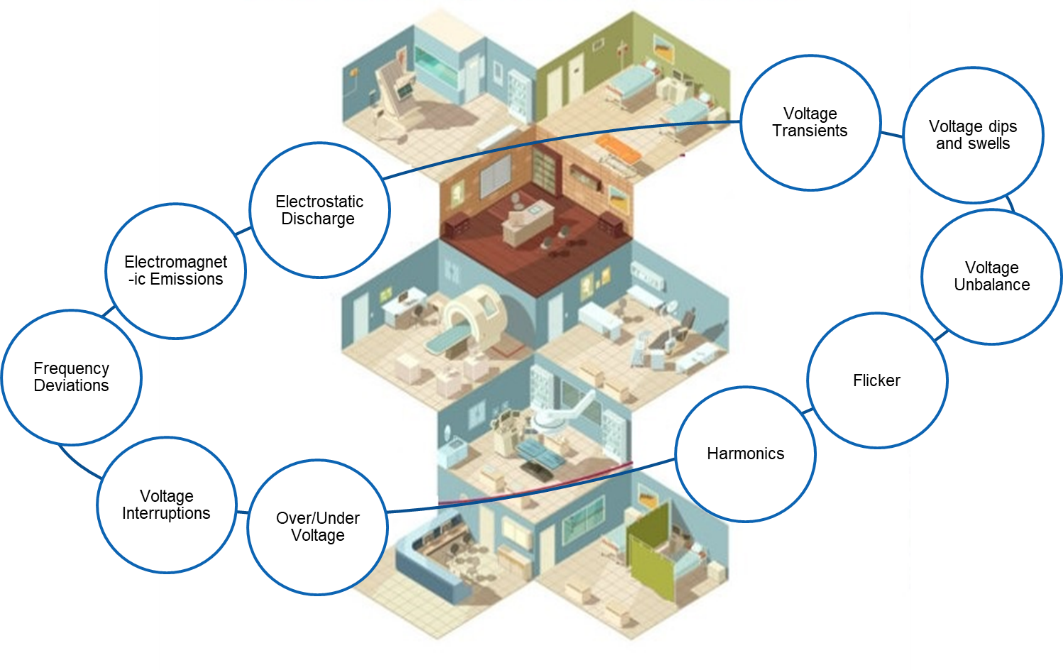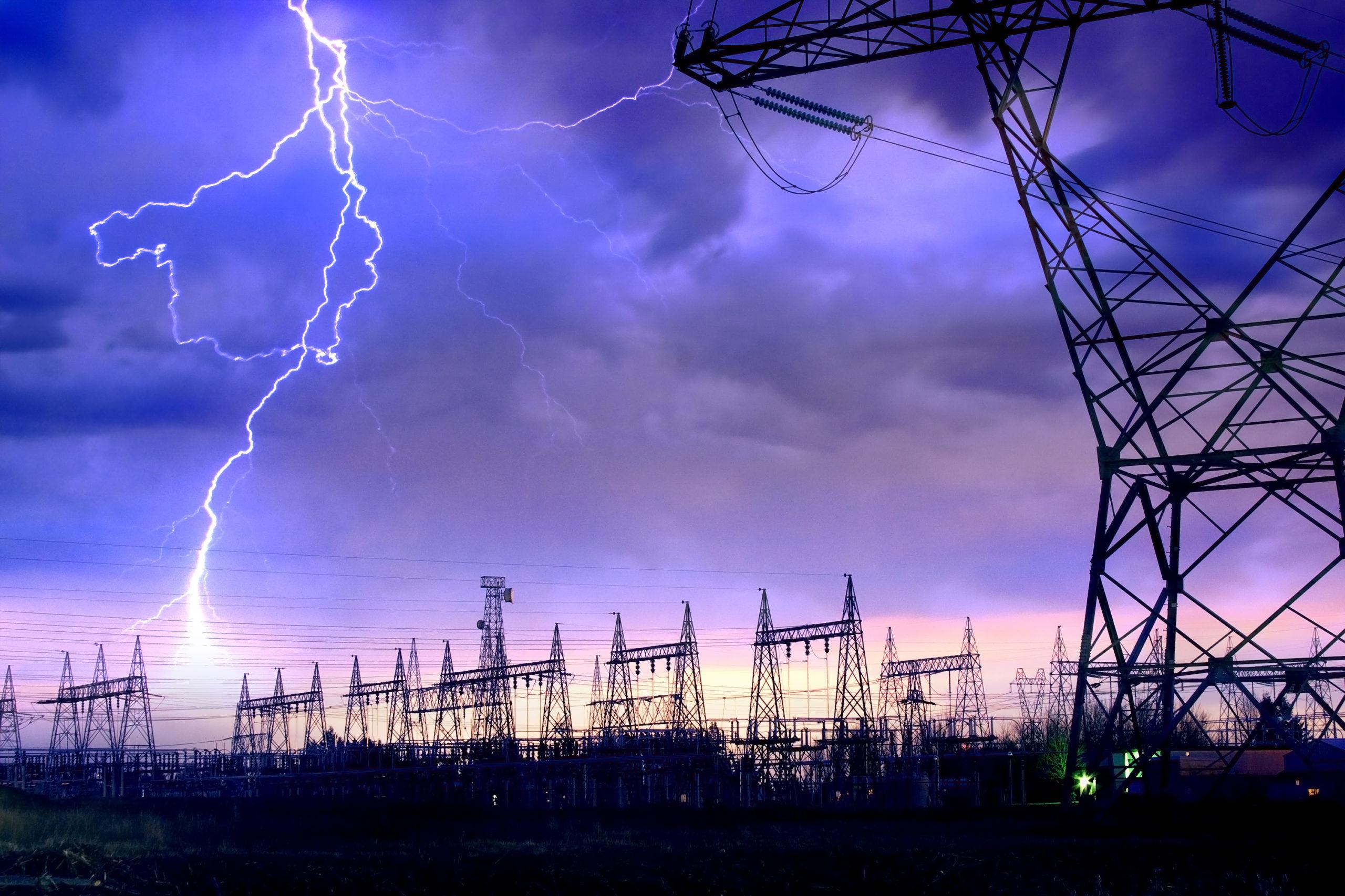Ensuring Electrical Safety in Greenfield Projects
Greenfield projects refer to construction projects on land where no previous development has taken place. These projects present unique challenges when it comes to electrical safety. The construction site is often remote and the installation of electrical systems is often complex. Additionally, the lack of existing infrastructure can make it difficult to implement safety measures that are standard on established sites.
This blog will look at the importance of electrical safety in greenfield projects in India. We will look at the difficulties encountered during electrical safety implementation, such as the installation of Lightning Protection Systems (LPS) and earthing, electrical load analysis, intricate electrical design, identifying potential power system issues, and the critical factors to consider for efficient electrical system design and engineering.
Factors to Consider for Efficient Electrical System Design and Engineering in Greenfield Projects.
1. Project plan: The project plan is a vital aspect of any business. Apart from the project timeline, milestones, and deliverables, it must include a risk assessment plan identifying potential risk and how to mitigate them. This is extremely important, especially in greenfield projects.
2. Efficient electrical system: Designing an electrical system for a greenfield project is complex. It requires a thorough understanding of the project's requirements and a comprehensive knowledge of the latest electrical technologies, electrical construction, and installation. It should also include an extensive electrical load analysis to ensure the electrical infrastructure meets the required power demand while optimizing energy efficiency.
3. Compliance with local regulations and codes: Compliance with local regulations and codes is essential for any construction project, and greenfield projects are no exception. Electrical installations must comply with various regulations and codes, which vary depending on the location.
4. Selection, installation, and testing of electrical equipment: The selection of electrical equipment is critical for the performance and reliability of the electrical system. The installation and testing of electrical equipment should be carried out by qualified and experienced personnel with the necessary skills and knowledge to ensure that the equipment is installed and functioning properly. Before the electrical system is put into operation, electrical system testing and commissioning should be carried out thoroughly. This also includes testing all electrical components and systems, including the power supply, distribution, and control systems.
5. Grounding systems: The design and installation of grounding systems are imperative for ensuring the safety and reliability of the electrical system. However, installing grounding systems can be challenging in greenfield projects, as the soil conditions and other environmental factors may vary.
6. Lightning protection: Lightning strikes can cause significant damage to a process plant, including equipment damage, fires, and even explosions. Lightning protection services can help protect the plant and its employees by ensuring that the electrical systems are adequately grounded and that any lightning strikes are safely directed away from the facility.
7. Power Quality: Power quality is another significant consideration in greenfield projects. Power quality issues can lead to equipment damage, downtime, and even safety hazards. It is important to carry out power system studies to evaluate power quality, identify potential power system issues, and offer recommendations for power system improvements. These studies can help ensure the plant's electrical systems are reliable, efficient, and safe for employees.
8. Renewable Energy Integration: In any greenfield project, renewable energy integration should be a priority. Wind and solar plant projects along with other forms of renewable energy should be considered during the electrical design phase to help offset the energy demand and reduce the carbon footprint of the project. The location and orientation of the renewable energy sources should also be considered to maximize energy generation.
9. Energy Management System: An energy management system should be considered during a greenfield project's electrical construction and installation phase. This system can be used to monitor and control energy consumption and production within the project. An effective energy management system helps optimize energy efficiency, reduce energy waste, and improve the project's overall sustainability.
The Importance of Electrical Safety in Greenfield Projects
Electrical safety is paramount on any construction site. This is especially true in greenfield projects where the installation of electrical systems is often complex and requires careful planning and execution. Failure to adhere to safety guidelines can result in serious injuries, fatalities, and damage to equipment and property.
Electrical safety measures are designed to protect workers and equipment from electrical hazards. These hazards can include electrical shock, burns, fires, and explosions. To mitigate these risks, safety measures must be implemented at all stages of the construction process. This includes the design phase, the installation phase, and the operation phase.
Challenges Faced While Implementing Electrical Safety
Greenfield projects face several challenges when it comes to implementing electrical safety measures. Some of the key challenges include:
1. Lack of infrastructure: Greenfield projects are often located in remote areas where there is no existing infrastructure. This can make it difficult to implement safety measures that are standard on established sites, such as access to power, water, and telecommunications.
2. Limited access to skilled labor: Greenfield projects require specialized skills and expertise to install and maintain electrical systems. This can make it difficult to find skilled labor in remote locations.
3. Complex installation: The installation of electrical systems in greenfield projects is often complex and requires careful planning and execution. This can make it difficult to ensure that safety measures are implemented at all stages of the installation process.
4. Extreme weather conditions: Greenfield projects are often located in areas with extreme weather conditions. This can make it difficult to ensure that electrical systems are installed and maintained safely and reliably.
How can we help?
At JEF Techno, we offer project management and support services, which can help streamline the construction and installation process. Our team of professionals can work closely with contractors and project managers to ensure the project is completed on time, within budget, and to the highest quality standards.
We provide engineering solutions for power distribution, lighting systems, HVAC control, and building automation systems, among others. Our experienced engineers can conduct required electrical safety inspections and audits and develop electrical designs that are energy-efficient, reliable, and cost-effective, ensuring that the project is built with the most advanced technology and industry standards. Being pioneers in offering grounding and lightning protection solutions for over 28 years, we are a trusted name in risk management and reliability across the globe. At JEF, we enable holistic energy efficiency and sustainability consulting that keeps sustainability and wellness at the center stage of the estate.




